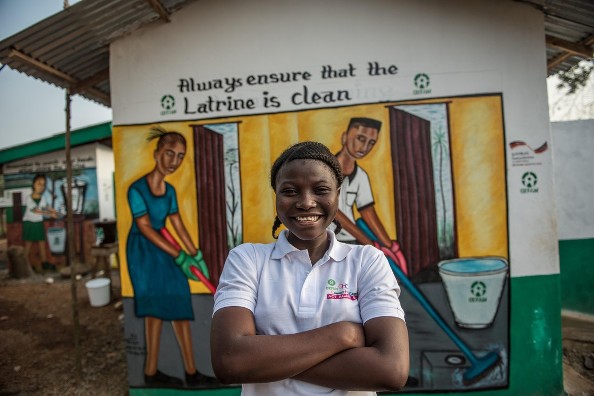A toilet is a simple piece of technology that is taken for granted everyday by those lucky enough to own one.
But, unfortunately, there are 2.4 billion people; that’s 32% of the world’s population, who does not have access to a proper toilet, and 54% of the world’s population does not have access to a clean toilet. That’s why 19 November is World Toilet Day, and Oxfam Cymru is joining the campaign to raise awareness of and tackle this problem that affects so many.
In areas all around the world, people lack access to clean sanitation. This often leads to sickness and diseases, with 315,000 child deaths every year caused by diarrhoea alone. One in ten people in the world have no choice but to defecate out in the open. Lack of toilets affects every aspect of human life: without proper sanitation health, security and jobs are affected.
Poverty is an obvious cause of the problem, and conflicts and natural disasters make the problem worse, by destroying infrastructure and displacing people. Lack of clean sanitation also causes 17% of workplace deaths, impacting morale and productivity.
Another chilling fact is that the problem is worse for women, with one in three women risking disease and sexual harassment, because of the lack of decent toilets. Humanitarian and refugee camps are examples of places with poor sanitation, and factors like lack of lighting outside toilets and facilities contribute to the problem of sexual violence and harassment towards women.
Although the situation may seem bleak, there are things that can be done. Using tiger worm toilets is one example of a new way to tackle the problem. The tiger worm (an earthworm that thrives in manure and compost) digests any solid waste to produce soil compost, while water waste is filtered through sand, charcoal and gravel. It is a great way of providing clean and hygienic toilets in areas without infrastructure – refugee camps for example. Another solution for emergency toilets is an IKEA-styled structure, which provides privacy and
healthier conditions. The idea is to provide a flat-packed structure that can be built and used immediately after an emergency. This can help to reduce the spreading of diseases. These innovative examples also show that there is potential to explore and design new ways to treat waste in areas that lack infrastructure. This can provide areas with work, and a stronger economy.
World Toilet Day spreads the word about how important a toilet really is, and helps more people realise that clean toilets and proper sanitation are essential for a healthy life, something that everyone in the world should have access to.
To learn more about Oxfam’s innovative toilets around the world visit: https://water.oxfam.org.uk/world-toilet-day/
